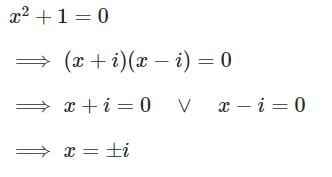Commerce Exam > Commerce Tests > Mathematics (Maths) Class 11 > Test: Quadratic Equations - Commerce MCQ
Test: Quadratic Equations - Commerce MCQ
Test Description
10 Questions MCQ Test Mathematics (Maths) Class 11 - Test: Quadratic Equations
Test: Quadratic Equations for Commerce 2024 is part of Mathematics (Maths) Class 11 preparation. The Test: Quadratic Equations questions and answers have been
prepared according to the Commerce exam syllabus.The Test: Quadratic Equations MCQs are made for Commerce 2024 Exam. Find important
definitions, questions, notes, meanings, examples, exercises, MCQs and online tests for Test: Quadratic Equations below.
Solutions of Test: Quadratic Equations questions in English are available as part of our Mathematics (Maths) Class 11 for Commerce & Test: Quadratic Equations solutions in
Hindi for Mathematics (Maths) Class 11 course. Download more important topics, notes, lectures and mock
test series for Commerce Exam by signing up for free. Attempt Test: Quadratic Equations | 10 questions in 20 minutes | Mock test for Commerce preparation | Free important questions MCQ to study Mathematics (Maths) Class 11 for Commerce Exam | Download free PDF with solutions
Detailed Solution for Test: Quadratic Equations - Question 1
Detailed Solution for Test: Quadratic Equations - Question 2
| 1 Crore+ students have signed up on EduRev. Have you? Download the App |
Detailed Solution for Test: Quadratic Equations - Question 3
Test: Quadratic Equations - Question 4
Find the roots of the quadratic equation: x2 + 2x - 15 = 0?
Detailed Solution for Test: Quadratic Equations - Question 4
Detailed Solution for Test: Quadratic Equations - Question 5
Test: Quadratic Equations - Question 6
The solution of the quadratic equation: 2x2 + 3ix + 2 = 0
Detailed Solution for Test: Quadratic Equations - Question 6
Test: Quadratic Equations - Question 7
The solution of the quadratic equation : 2x2 – 4x + 3 = 0
Detailed Solution for Test: Quadratic Equations - Question 7
Test: Quadratic Equations - Question 8
If one of the root of a quadratic equation with rational coefficients is rational, then other root must be
Detailed Solution for Test: Quadratic Equations - Question 8
Detailed Solution for Test: Quadratic Equations - Question 9
Detailed Solution for Test: Quadratic Equations - Question 10
|
75 videos|238 docs|91 tests
|
Information about Test: Quadratic Equations Page
In this test you can find the Exam questions for Test: Quadratic Equations solved & explained in the simplest way possible.
Besides giving Questions and answers for Test: Quadratic Equations, EduRev gives you an ample number of Online tests for practice
|
75 videos|238 docs|91 tests
|
Download as PDF






















